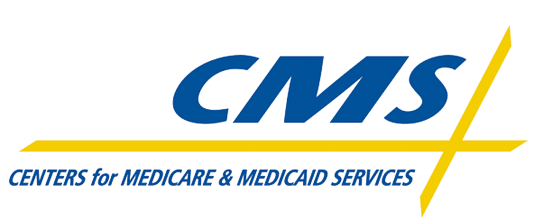Benjamin Franklin must have been contemplating Medicare Advantage Plan reimbursement when he uttered one of his famous lines: “If you fail to plan, you are planning to fail.” Over the past few years Medicare Advantage plans have increasingly been seeking reimbursement for payments made stemming from workers’ compensation, liability and no-fault claims, otherwise known in Medicare circles as Non-Group Health Plans (NGHPs). Despite these increasing efforts, many NGHPs have not planned how they should respond to such reimbursement claims.
With the goal of working with our clients to educate and assist with proper planning, earlier this month, Tower MSA was privileged to have Brian Bargender, Subrogation & Other Payer Liability Business Consultant for Humana, participate in a webinar to discuss reimbursement rights of Medicare Advantage plans, and best practices for investigating and responding to reimbursement claims. For those who were unable to attend, or would like a refresher, we are pleased to provide below a summary of Mr. Bargender’s presentation along with some final thoughts and takeaways.
Medicare Advantage Plan Background
Part C Medicare Advantage plans (MA plans) are alternative delivery mechanisms for traditional Medicare benefits (Parts A and B) provided by private companies under contract with CMS. Medicare beneficiaries have the option of choosing one of these Medicare Advantage plans during annual or special enrollments periods. The three largest MA plan sponsors (representing almost half of the available plans) are UnitedHealthcare, Humana and Aetna. As of 2017, one-third of Medicare beneficiaries are enrolled in MA plans.
Medicare Advantage Plan Recovery Rights
Pursuant to CMS direction, MA plans must enforce the Medicare Secondary Payer Act (MSP) and will be audited by CMS for compliance with the Act. Consequently, these plans are obligated to coordinate benefits such that MA Plan coverage is denied when a primary payer is covering treatment and when the MA plan pays, but later learns of primary payer responsibility, seek reimbursement for payments made relating to the particular workers’ compensation, liability or no-fault claim.
MA plans right to reimbursement, including double damages, from NGHPs under the MSP Act has been acknowledged in at least two significant federal appellate court decisions:
- In re: Avandia, 685 F.3d 353 (3d Cir. 2012)
- Humana Med. Plan, Inc. v. W. Heritage Ins. Co., 832 F.3d 1229 (11th Cir. 2016)
Medicare Advantage Plan MSP Enforcement Challenges
Despite CMS’s direction to MA plans regarding enforcement of the MSP Act, including coordination of benefits, the data available to the MA plans to perform this task is inconsistent and error prone. Consequently, MA plans have taken one of three approaches to MSP enforcement:
Inactive: Minimal effort
Reactive: Relying upon member and medical provider reporting of primary plans
Proactive: Claim screening and investigation
As Mr. Bargender explained, Humana is taking the proactive approach. Nonetheless, the challenges faced by Humana in identifying coordination of benefits situations has proven difficult as a result of gaps in medical provider and Medicare beneficiary self-reporting and data provided by CMS which is “too little, too late, often wrong.” Additional challenges faced by MA plans are incomplete direction from CMS and non-cooperation of Medicare beneficiaries and plaintiff attorneys to MA plan reimbursement claims. As such, Humana utilizes a multi-faceted approach of member questionnaires, public records, such as accident reports and workers’ compensation claims, and non-public records, such as data relayed by CMS, to determine possible MSP coordination of benefits and reimbursement opportunities.
Best Practices for Non-Group Health Plans and MA Plan Reimbursement
Humana’s proactive approach then has the ultimate goal of reimbursement for charges related to the claimed injury. Mr. Bargender shared the following basic precautions to be taken by NGHPs:
- Train front-line staff on MSP basics – including MA & Part D
- Assume older & disabled claimants have some form of Medicare
- Be proactive when told claimants don’t have original Medicare
- Watch for other payer info in medical records
- Watch for notices from other payers
- No-fault and accepted work-comp claims
- Pay treating providers directly for outstanding medical bills
- Be suspicious of billing gaps (other payer?)
And when it comes to Liability and disputed or denied workers’ compensation claims:
Find out who paid for medicals
- Providers rarely wait for settlements
- CMS “no payment” letters aren’t the last word
- Request benefit ID card(s)
- Ask to see other payer “no payment” letters
- Medicare/Medicaid dual beneficiaries? …assume Part D paid Rx
Address MSP repayment before agreeing to settlement
- Determine amount before settlement is finalized
- Don’t assume plaintiff will reimburse MA plan or unpaid providers
- What does settlement indemnification language actually accomplish?
In terms of negotiating and resolving MA plan claims for reimbursement, Mr. Bargender offered as follows:
Most MA plans are open to working with primary payers
Focus on these:
- Rationale for denying beneficiary’s underlying claim, not MA/Part D rights
- Limits exhausted, treatment not allowed/capped, etc.
- What’s related (was it in the demand or release?)
- Errors in plan’s payment ledger
- Extenuating circumstances
Not on these:
- Reasonableness of amounts paid by MA
- Claim filing time limits vs. MSP statute of limitations
- Contract language” in the MA Evidence of Coverage document
Final Thoughts and Takeaways
In working with Mr. Bargender and the subrogation team at Humana, we have found them very helpful in promptly identifying specific reimbursement claim information where the claimant was enrolled in a Humana Medicare Advantage plan. Further, they are open to understanding the particular liability issues and bases for settlement, something not typically found with the Medicare conditional payment recovery contractors.
The primary takeaway from Mr. Bargender’s presentation is NGHPs must be proactive in identifying whether a Medicare eligible claimant is enrolled in a MA plan, and, if so, investigate whether the plan is seeking reimbursement for payments made related to the claim. As there exists no central database accessible to NGHPs in which to identify the MA plan a claimant is enrolled, the claims handler must be proactive in inquiring of the claimant whether they are enrolled in such a plan.
Tower MSA Partners will work with our clients to assist in identifying whether a claimant may be enrolled in a MA plan, identify the name of the plan and investigate whether such plan is seeking reimbursement stemming from the claim. We stand ready to assist you through general consultation on ensuring your MSP compliance program appropriately addresses MA plans or consultation on MA plan recovery* in a specific claim.
*While we did not delve into Part D Prescription Drug plans in this article, such plans arguably have similar reimbursement rights as Part C Medicare Advantage plans. NGHPs should also be aware of the potential for reimbursement claims from these plans.
Daniel Anders







